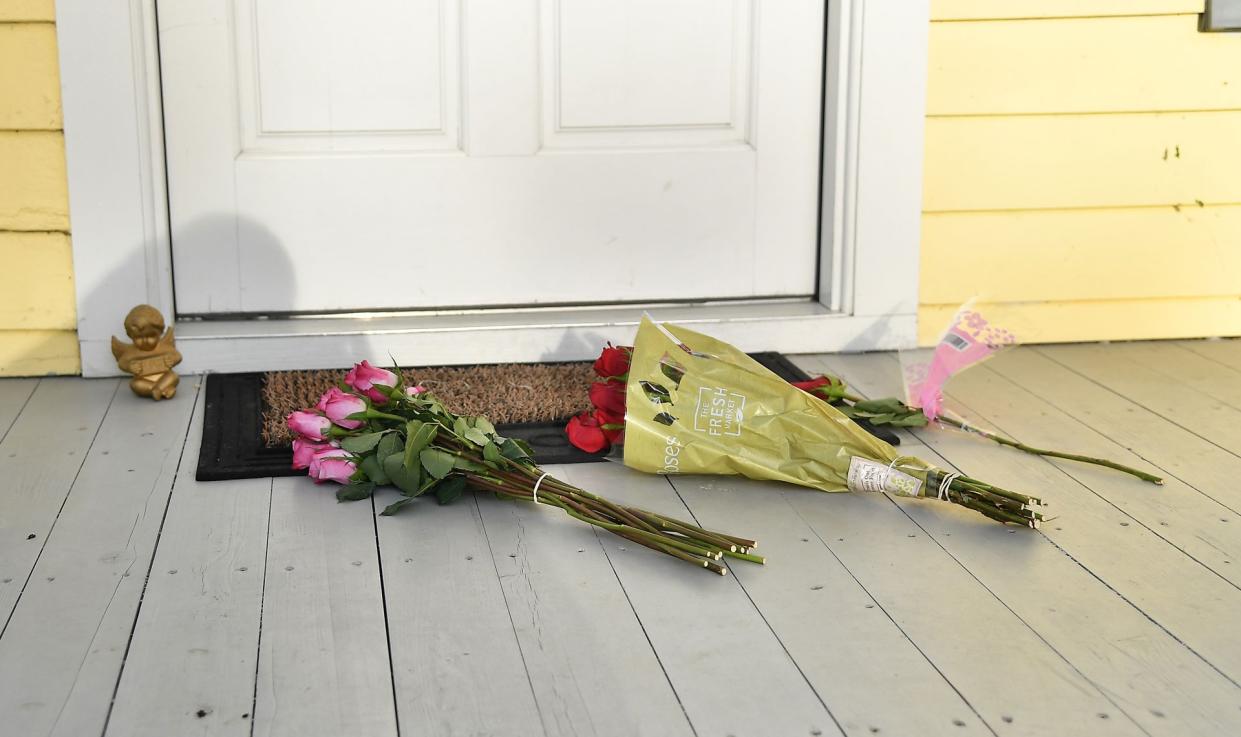5 Ways to Deal With Grief at Home

Grief is the natural human response to loss. With a growing number of victims of COVID-19, mass hospitalizations, and increased unemployment, many of us are mourning at this unprecedented time. And as many people are sheltering in place, we are left to process this grief at home, without the support of the communities we usually rely on. But you are not alone in experiencing this emotion, and it is okay to be grieving now.
Though grief impacts everyone differently, it is important to acknowledge that you are grieving. Elisabeth Kübler-Ross, a psychiatrist, described five stages of grief in her book On Death and Dying, which have been developed into a framework for navigating the grieving process. While the Five Stages of Grief™—denial, acceptance, bargaining, depression, and acceptance—are important to know in normalizing loss, grief is a very nonlinear process and can impact everyone differently.
Here are five expert-recommended ways to deal with your grief at this time when you may not be able to travel and connect with loved ones.
Connect with others
Talking about your feelings with your loved ones can be helpful in processing intense emotions. “Sharing your grief can provide comfort and alleviates the feeling you are carrying the loss alone. Although we all process loss and grief uniquely, sharing allows us to move forward in a healthy way,” says Babita Spinelli, LP, a psychotherapist and the owner of Opening the Doors Psychotherapy. There are several ways to share grief while adhering to social distancing guidelines in this pandemic. Start talking about your feelings with your loved ones at home. If you live alone, schedule video meetings to share your loss and receive support from those you trust. You can also join a virtual Grief Support Group to talk about your feelings with those also grieving.
Record your feelings
It is normal to be experiencing a lot of emotions with your grief, and writing them down can be valuable in keeping track of those emotions. At home, you can keep a journal dedicated to your thoughts and feelings as you navigate the aftermath of your loss. Kristin Meekhof, LMSW, a therapist and the author of the book A Widow’s Guide to Healing recommends this journal writing as a healthy practice for attaining self-compassion to heal emotional pain surrounding loss. “[Journaling] allows you to become transparent with yourself and write the unspeakable. It is difficult to heal if you are constantly hiding from yourself,” she says.
Engage in rituals
Rituals can be consoling in the immediate time following your loss. A 2017 psychological study found that funerals positively impacted those grieving in the first months after their loss, but did not affect the intensity of the grief. “I found comfort in attending a special memorial service for my brother after I lost him to suicide. During this time, I felt the support of family and friends as we shared memories of him, and it was especially helpful to receive a care package of thoughtful grief resources as we navigated this new unknown emotional territory,” says Julia Broglie, an entrepreneur and co-founder of BroglieBox LLC.. This later inspired Julia and her partner Dustin Belt to create a grief relief box filled with resources to support grieving individuals. Though bereavement events and other occasions may be canceled during this pandemic, gifts like these are wonderful to purchase for yourself and give to others shortly after their loss. There are many rituals you can take part in, from cultural to religious to those you create on your own, but make sure to adhere to social distancing guidelines as you honor and remember your loved ones.
Preserve memories
If you are mourning the loss of a loved one, remembering the precious times you had with them can be quite comforting—especially if you live alone now. Gail Carruthers, an equine-guided learning facilitator and cofounder of the Equine Grief and Loss program at Skye Blue Acres, recommends finding a connection with your loved one at home. “Try cooking meals you both enjoyed or virtually visiting places where you traveled together,” she says. “These types of practices help with experiencing emotional connections you had, but also help you work through the new reality of their death and life without them. Going through the motions of remembering your loss helps to build new scaffolding for a new way of living when they are no longer physically present in our lives.”
Partake in activities that give you meaning
Not only are the five stages of grief important to understand, but there is also a new stage that can be quite helpful in coping with grief. David Kessler, a grief expert, worked with the five-stage Kübler-Ross model and found a sixth stage: finding meaning. “Finding meaning in the aftermath of your loss can help mitigate the painful feeling the absence has. It can help you channel your grief into something that has meaning and can positively affect others, as well as the impact of helping you feel connected to a larger community,” says Luisa Bonifacio, Ph.D., lead therapist at Real. In this pandemic, there are numerous ways to find meaning in whatever loss you experience. It may be helpful to find ways to support health-care workers or help frontline communities in need at this time. “If you are grieving about the death of loved one(s), a great way to find meaning would be to engage in an activity that keeps the memory and legacy of your loved one so you can share their great impact on yourself and others. There are lots of good ideas—in the past I have seen people create scholarship funds and conferences to bring awareness to causes that were important to their loved ones,” says Dr. Bonifacio.
Originally Appeared on Architectural Digest

